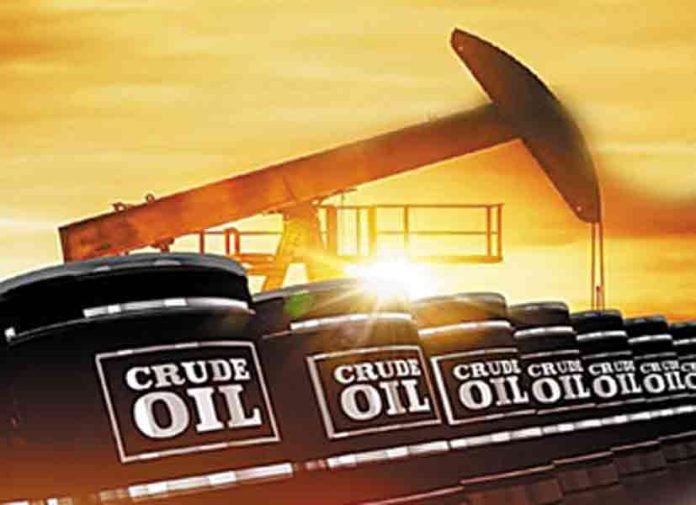The recent heat wave that swept across the country during and after the Lok Sabha elections has caused widespread distress. The repercussions of this extreme weather event were not confined to humans alone; various businesses felt the heat, quite literally. Despite the central government’s efforts to stimulate economic activity by reducing the prices of petrol and diesel, the expected boost in fuel sales did not materialize. This article delves into the multifaceted effects of the heat wave on fuel consumption and other business activities, presenting a detailed analysis of the situation.
Heat Wave’s Toll on Fuel Consumption
Stagnation in Petrol Sales
In June, the petrol sales of the three government companies that dominate 90% of the fuel market registered a mere 1.42 million tons in the first fortnight, marginally up from 1.41 million tons in the same period last year. However, a closer inspection reveals a 4.6% decline in month-on-month consumption. This downturn is surprising given the price reductions introduced by the government and the increased need for cooling solutions in vehicles amid the soaring temperatures.
Decline in Diesel Sales
Diesel, the most consumed fuel in the country, saw its sales drop significantly. From June 1 to June 15, diesel sales decreased by 3.9% compared to the same period last year, falling to 39.5 lakh tons. This decline follows a downward trend observed over the past few months: a 2.3% drop in April, a 2.7% drop in March, and a 1.1% decline in May. The anticipated surge in fuel consumption due to the election campaign and the summer harvesting season was starkly absent, defying traditional consumption patterns.
Unanticipated Trends in Fuel Demand
Election Campaigns and Fuel Demand
Historically, election campaigns tend to boost fuel demand due to increased travel and logistical activities. However, the 2023 Lok Sabha elections bucked this trend. Despite extensive campaigning across the nation, fuel consumption did not see the expected rise. Instead, the heat wave appeared to have curbed movement, with people opting to stay indoors to avoid the extreme temperatures, thereby reducing travel and fuel use.
Agricultural Sector’s Response
The agricultural sector, which heavily relies on diesel for machinery and transport during the summer harvesting season, also witnessed a dip in fuel consumption. Farmers, grappling with the heat wave, faced additional challenges that likely hindered their usual activities. The reduced operational hours and increased costs of maintaining cooling solutions for equipment might have contributed to the decreased diesel usage.
Economic Implications of Reduced Fuel Consumption
Impact on Government Revenue
The decline in fuel sales directly impacts government revenue. Fuel taxes constitute a significant portion of the central and state revenues. The reduction in sales, therefore, translates to lower tax collections, potentially affecting public expenditure and fiscal health.
Effect on the Transport Sector
The transport sector, both public and private, has been significantly affected by the reduced fuel consumption. Lower sales volumes mean lower profits for fuel companies, which in turn might impact their capacity to invest in infrastructure and maintenance. Additionally, the transport sector’s reduced activity could have broader economic implications, affecting supply chains and the timely delivery of goods.
Analyzing the Heat Wave’s Broader Business Impact
Retail and Hospitality Sectors
Beyond the fuel industry, the retail and hospitality sectors have also felt the brunt of the heat wave. With fewer people venturing out, retail stores have seen a decline in foot traffic. Similarly, the hospitality industry, which anticipated a boost from election-related travel, faced lower occupancy rates. The combined effect of reduced consumer spending and increased operational costs due to cooling requirements has strained these sectors.
Manufacturing and Industrial Output
The manufacturing sector, particularly industries with high energy consumption, has been adversely affected. The increased cooling costs to maintain safe working environments and the potential for heat-induced machinery malfunctions have added to the operational challenges. This has resulted in slower production rates and, in some cases, temporary shutdowns to mitigate heat risks.
Strategies for Mitigating Heat Wave Impacts
Government Interventions
To address these challenges, the government could consider several interventions. These might include financial relief packages for affected sectors, subsidies for cooling solutions, and incentives for businesses to invest in energy-efficient technologies. Additionally, enhancing infrastructure to better withstand extreme weather conditions could mitigate future impacts.
Business Adaptations
Businesses, on their part, can adopt several strategies to cope with the heat wave’s effects. Investing in sustainable and energy-efficient cooling systems can reduce operational costs. Flexible working hours and remote work options can help maintain productivity while ensuring employee safety. Furthermore, diversifying supply chains to reduce reliance on affected regions can help maintain business continuity.
The heat wave that struck during and after the Lok Sabha elections has undeniably impacted fuel consumption and various business sectors in unexpected ways. Despite government efforts to boost sales through price reductions, the extreme temperatures led to a decline in both petrol and diesel usage. This phenomenon underscores the need for comprehensive strategies to adapt to and mitigate the effects of climate change on the economy. As businesses and the government navigate these challenges, a focus on sustainability and resilience will be crucial in ensuring long-term economic stability.










